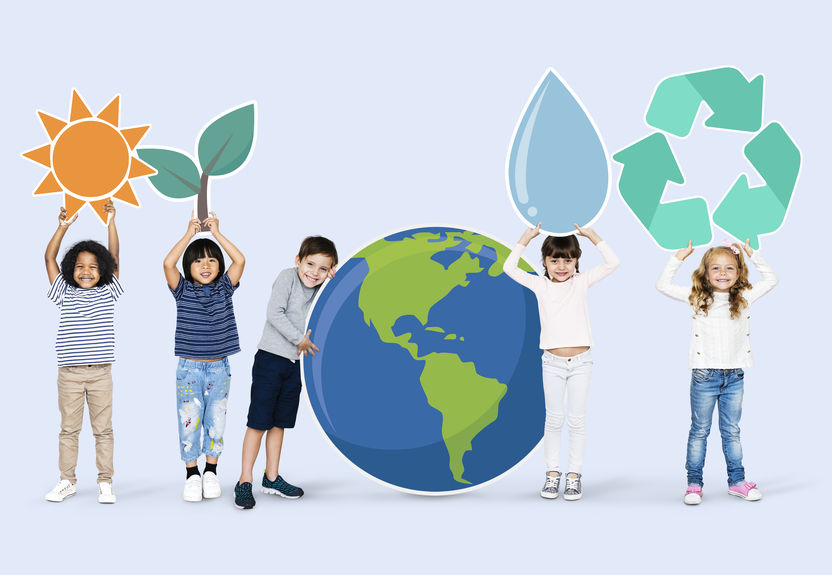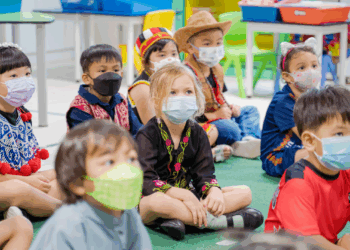The Urgent Call for Sustainable Education

The 21st century presents humanity with unprecedented environmental and social dilemmas. From extreme weather events and plastic pollution to food insecurity and social inequality, these issues underscore an urgent need for a fundamental shift in how we interact with our planet and each other. Education, as a powerful agent of change, is uniquely positioned to address these grand challenges.
A. Climate Change Imperative: The escalating climate crisis demands immediate and informed action. Future generations will bear the brunt of global warming, making it essential that they understand its causes, impacts, and potential solutions. Sustainable education equips students with the scientific literacy and critical thinking skills to comprehend and confront this existential threat.
B. Resource Depletion and Scarcity: Finite natural resources are being consumed at an unsustainable rate. Understanding concepts like energy conservation, water management, waste reduction, and the principles of a circular economy is crucial for fostering responsible consumption patterns from a young age.
C. Biodiversity Loss and Ecosystem Health: The rapid decline in biodiversity threatens ecosystem stability and human well-being. Sustainable education instills an appreciation for nature, teaches about ecological interconnectedness, and promotes actions that protect and restore natural habitats.
D. Global Interdependence: Environmental problems rarely respect national borders. Pollution from one region can impact another, and global supply chains often have far-reaching ecological footprints. Sustainable education emphasizes global citizenship and the interconnectedness of human actions with planetary health.
E. Youth as Agents of Change: Young people are not just passive recipients of a damaged planet; they are powerful agents for change. Empowering them with knowledge, skills, and a sense of agency through sustainable education can catalyze grassroots movements and systemic transformations.
F. Economic and Social Equity: Environmental issues are inextricably linked to social justice and economic equity. Sustainable education explores these connections, encouraging students to consider how environmental degradation disproportionately affects vulnerable communities and to advocate for equitable solutions.
The Transformative Benefits of Sustainable Education Initiatives
Integrating sustainability into the core of education yields a wealth of advantages for students, schools, and the wider community, far beyond environmental awareness.
A. Enhanced Environmental Literacy and Awareness: Students develop a deep understanding of ecological principles, environmental challenges, and sustainable practices. They learn about natural systems, conservation, renewable energy, and waste management, fostering informed decision-making.
B. Cultivation of Critical Thinking and Problem-Solving Skills: Addressing complex sustainability issues requires analytical thinking, creative problem-solving, and the ability to evaluate diverse solutions. Sustainable education challenges students to think critically about real-world problems and develop innovative responses.
C. Development of Global Citizenship and Empathy: Learning about global environmental challenges and their impact on diverse communities fosters a strong sense of global citizenship, empathy, and social responsibility. Students understand their role in a larger interconnected world.
D. Promotion of Practical Skills and Hands-On Learning: Sustainable education often involves practical, project-based activities, such as school gardening, waste audits, energy efficiency projects, or renewable energy installations. This hands-on experience provides tangible skills and reinforces theoretical knowledge.
E. Improved Health and Well-being: Sustainable practices often lead to healthier environments (e.g., reduced pollution, access to green spaces) which positively impact student and staff well-being. Learning about sustainable food systems can also promote healthier eating habits.
F. Cost Savings and Operational Efficiency for Schools: Implementing sustainable practices within school operations (e.g., energy conservation, water efficiency, waste reduction) can lead to significant cost savings, which can then be reinvested in educational programs.
G. Innovation and Green Career Pathways: Exposure to sustainability issues and solutions can inspire students to pursue careers in emerging green industries, such as renewable energy, environmental engineering, sustainable agriculture, or conservation, preparing them for the jobs of the future.
H. Enhanced School Culture and Community Engagement: Sustainable initiatives often foster a stronger sense of community within the school, as students, staff, and parents collaborate on shared environmental goals. This can also extend to broader community partnerships.
I. Development of Leadership and Advocacy Skills: Students involved in sustainable projects often take on leadership roles, organize awareness campaigns, and advocate for environmental change within their schools and communities, developing crucial leadership and advocacy skills.
J. Fostering a Sense of Hope and Agency: Facing daunting environmental challenges can be overwhelming. Sustainable education, by focusing on solutions and empowering students to take action, cultivates a sense of hope, agency, and belief in their ability to make a positive difference.
Innovative Approaches to Integrating Sustainability in Schools

Schools worldwide are adopting diverse and creative strategies to weave sustainability into the fabric of the educational experience.
A. Curriculum Integration (Cross-Disciplinary): Instead of treating sustainability as a standalone subject, integrate it across various disciplines.
* Science: Study ecosystems, climate science, renewable energy technologies.
* Math: Analyze data on resource consumption, calculate carbon footprints.
* Social Studies/History: Explore environmental justice movements, historical impacts of resource use.
* Language Arts: Write persuasive essays on environmental issues, analyze nature poetry.
* Art: Create art from recycled materials, express environmental themes.
B. Green School Buildings and Operations: Transform the school campus into a living laboratory for sustainability. This includes:
* Energy Efficiency: Solar panels, LED lighting, smart thermostats.
* Water Conservation: Rainwater harvesting, low-flow fixtures, drought-tolerant landscaping.
* Waste Management: Comprehensive recycling, composting programs, reducing single-use plastics.
* Green Spaces: School gardens, native plant landscaping, outdoor classrooms.
C. Experiential Learning and Outdoor Education: Get students out of the classroom and into nature. Field trips to nature reserves, local farms, recycling centers, or water treatment plants provide real-world context. Developing school gardens allows students to learn about food systems, biodiversity, and soil health hands-on.
D. Student-Led Initiatives and Eco-Clubs: Empower students to identify and lead sustainability projects within their school and community. Eco-clubs, environmental committees, or student “green teams” can drive initiatives like recycling campaigns, energy audits, or tree-planting drives.
E. Community Partnerships: Collaborate with local environmental organizations, community gardens, businesses, and government agencies. These partnerships can provide expert guest speakers, mentorship opportunities, resources for projects, and avenues for students to engage in real-world environmental action.
F. Zero-Waste and Sustainable Cafeteria Programs: Implement programs to reduce food waste, promote healthy and locally sourced food, and eliminate single-use plastics in the cafeteria. Students can be involved in waste sorting and composting.
G. Teacher Training and Professional Development: Equip educators with the knowledge and pedagogical skills to teach sustainability effectively. This includes training on climate science, environmental justice, project-based learning for sustainability, and incorporating outdoor education.
H. Certifications and Green School Designations: Pursue certifications like Eco-Schools, Green Ribbon Schools (in the US), or other national/international green school programs. These provide frameworks and recognition for sustainable efforts.
I. Interdisciplinary Project-Based Learning: Design comprehensive projects where students research, analyze, and propose solutions to local or global sustainability challenges, integrating knowledge from multiple subjects.
J. Digital Tools for Sustainability Education: Utilize online resources, simulations, data visualization tools, and virtual field trips to explore environmental concepts and track progress on sustainability initiatives.
Challenges in Implementing Sustainable Education Initiatives
Despite the compelling rationale, widespread integration of sustainable education faces several significant hurdles.
A. Curriculum Overload and Standardized Testing: Existing crowded curricula and the pressure to meet standardized test requirements often leave little room or time for new topics like sustainability, which can be perceived as an “add-on.”
B. Lack of Teacher Training and Confidence: Many educators may not have a background in environmental science or sustainability, nor are they trained in the pedagogical approaches suitable for hands-on, interdisciplinary sustainability education. This can lead to a lack of confidence in teaching these topics.
C. Funding and Resources: Implementing sustainable infrastructure (e.g., solar panels, efficient waste systems) and acquiring materials for hands-on projects can be costly. Securing adequate and sustained funding is a major challenge for many schools.
D. Systemic Resistance to Change: Educational systems can be slow to adopt new paradigms. Resistance may come from administrators, policymakers, parents, or even educators accustomed to traditional methods.
E. Perception as a “Soft” Subject: In some contexts, environmental education might still be seen as a “soft” or optional subject, rather than a core, essential component of modern literacy, undermining its perceived importance.
F. Political and Ideological Barriers: Discussions around climate change and environmental policy can sometimes be politicized or meet ideological resistance, making it challenging to introduce these topics objectively and effectively in schools.
G. Lack of Clear Policy and Mandates: Without clear governmental policies or educational mandates for sustainability education, its implementation often depends on individual school initiatives, leading to inconsistency.
H. Measuring Impact and Outcomes: While the long-term benefits are clear, quantifying the immediate academic or behavioral impacts of sustainable education initiatives can be challenging, making it harder to advocate for continued investment.
I. Engaging All Stakeholders: Gaining consistent buy-in and active participation from students, teachers, parents, administrators, and the wider community requires sustained effort and effective communication strategies.
J. Keeping Up with Evolving Science: The field of sustainability is constantly evolving with new scientific discoveries and technological advancements. Educators need ongoing professional development to stay current and teach accurate, up-to-date information.
The Future of Education for a Sustainable World
The trajectory of education is undeniably moving towards a future where sustainability is not just a topic but a guiding principle. As the urgency of global environmental and social challenges intensifies, schools are increasingly recognized as critical incubators for the solutions of tomorrow.
Imagine a future where:
- Every school is a net-zero energy consumer, powered by renewables and designed with ecological principles in mind.
- Curricula seamlessly integrate sustainability across all subjects, fostering interconnected thinking about planetary health.
- Students regularly engage in outdoor learning, connecting with nature and participating in real-world environmental projects.
- Green skills are valued components of vocational training, preparing students for the burgeoning green economy.
- Schools serve as community hubs for sustainability advocacy, inspiring broader societal change.
Conclusion
Sustainable education is not an optional add-on; it is the cornerstone of responsible citizenship and the foundation for a resilient future. By empowering children and young people with knowledge, critical thinking skills, a sense of agency, and a deep appreciation for the natural world, we are equipping them to become the innovators, leaders, and problem-solvers who will navigate humanity towards a more equitable, prosperous, and ecologically balanced existence. The investment in sustainable education today is an investment in the health and vitality of our planet for generations to come.










